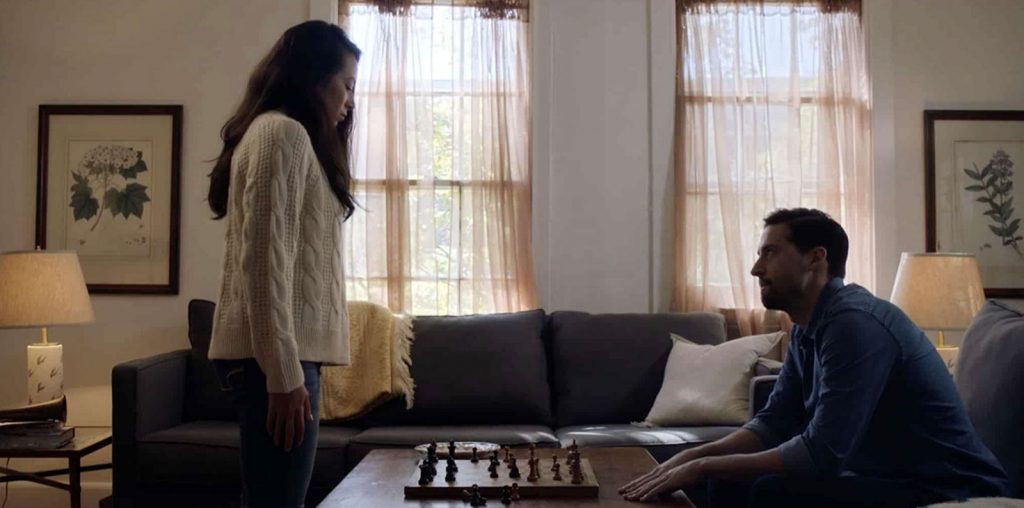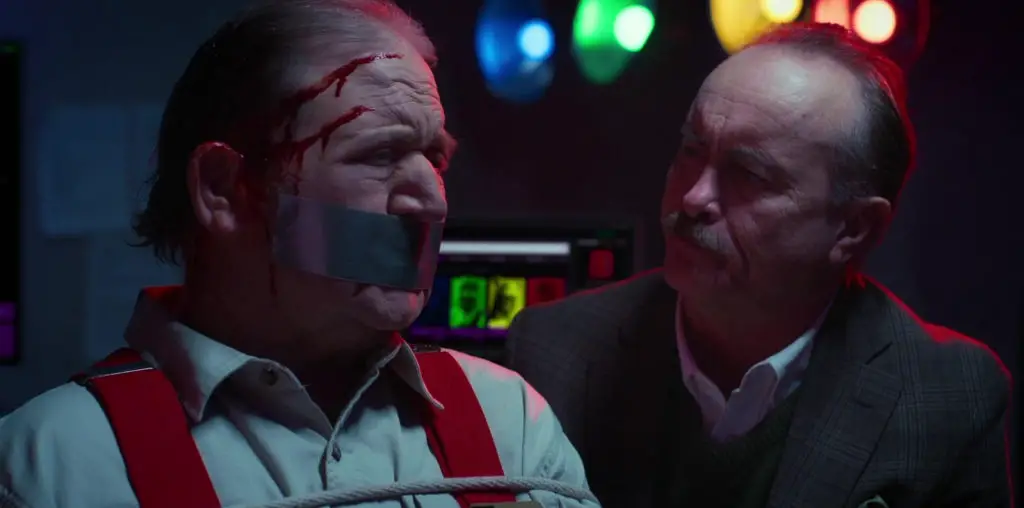
Something’s wrong in America. Be it complacency with our high standard of living or merely cultural apathy following the turbulent political strife of the 1970’s, most Americans simply don’t seem to care any more about how our country is run. Director Laurel Greenberg is concerned with this very issue using her film “Trouble in Paradise” to spotlight the flawed voting process in California both in the 2000 Presidential campaign and the subsequent race for Governor in 2002. While thought provoking in the questions it asks, Greenberg*s documentary suffers from bringing up great points only to leave them hanging.
Following Gore’s loss to Bush in 2000 Greenberg works to show how Florida Democrat’s rallied to expose the inherent problems with their voting system, from confusing ballots to bias against minority voters. Bush’s presidential victory acts as a call to arms for the Democrats who seem to view the 2002 race for Governor as a chance for revenge against the Republicans. Greenberg profiles many people who are passionate about the race such as Democrat volunteer Deidre Newman, a real estate agent who just wants to make a difference in her community, Larry Winawer, a grassroots candidate who has Florida*s best interests at heart and Thomas Johnson, an ex-con battling for his right to vote.
In Johnson’s case he is frustrated with the Florida bureaucracy concerning the rights of convicted felons to vote. On the one hand Florida allows felons who were granted the right to vote in other states the opportunity to freely vote in Florida as well, HOWEVER there is a separate rule that states ALL ex-cons must be granted clemency by the Florida government before they can vote, in other words two contradictory procedures in place at the same time. When this concern is brought up at a press conference to Secretary of State Katherine Harris she seems bewildered as to how such a system could be in effect. Yet even more astonishing than the loopholes such as this that hold minority voters down is a late film revelation that although Johnson is an African American ex-con, the definition of the type of voter being abused by the Florida system of government run by Republicans; Johnson tends to vote Republican! He says we would have voted for both Bush brothers if he had been given the chance.
The problem with “Trouble in Paradise” is that given turn of events such as this, Greenberg is unable to follow up. When it becomes apparent that the race for Governor is a lost cause for the Democrats, Greenberg and company seem unable to say what happened. Following all the passion and propaganda in response to the messy Florida 2000 election, it seems as though Democrats cared even less than ever. Most of “Trouble In Paradise” focuses upon the efforts of Democrats to change the system only to see their efforts fail miserably. “Trouble In Paradise” would have been stronger if it had attempted to figure out where the Democrats went wrong.
Greenberg asks questions that need to be addressed such as why is our two party platform currently so one sided and what is the role of the everyday person in our system of government but in not addressing these subjects head on, leaves the audience wanting more. Despite the kindly Larry Winawer’s efforts to be elected Governor, the audience knows from the moment he first appears on screen that he is doomed. Instead of spending so much time showing Winawer appealing to people outside of grocery stores and in small convention halls, it might have been better to focus on how the odds of a grass roots campaign succeeding given our current political climate is all but impossible.
Greenberg’s film is a nice first step in correcting the Democratic party but in future projects Greenberg could afford to dig deeper within her subject to get at the core of why things are the way they are.

